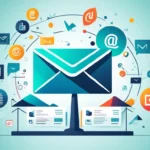Marketing automation has become an essential component of modern marketing strategies. As businesses strive to reach wider audiences and improve efficiency, understanding how to effectively use marketing automation tools is crucial. These tools not only streamline repetitive tasks but also enhance campaign personalization, optimize resource allocation, and ultimately drive higher returns on investment (ROI). This article delves into the effective use of marketing automation tools to elevate your marketing efforts and achieve measurable success.
Understanding the Power of Marketing Automation
Marketing automation tools are designed to automate various marketing processes, from email campaigns and social media posting to lead generation and customer relationship management. By automating these tasks, businesses can save significant time and resources, allowing marketing teams to focus on strategic planning and creative initiatives. Moreover, marketing automation provides valuable insights into customer behaviors and preferences, enabling more targeted and personalized marketing efforts.
Choosing the Right Automation Tools
Selecting the right marketing automation tools is the first step toward success. The market offers a plethora of options, each with its unique features and capabilities. When choosing a tool, consider factors such as ease of use, integration with existing systems, scalability, and the specific needs of your business. Popular tools like HubSpot, Marketo, and Mailchimp offer comprehensive solutions that cater to various marketing needs, from email marketing and social media management to analytics and reporting.
Personalizing Customer Engagement
One of the key benefits of marketing automation is the ability to personalize customer engagement at scale. By leveraging data collected from various touchpoints, businesses can create highly targeted campaigns that resonate with individual customers. For example, automated email campaigns can be tailored based on customer behavior, purchase history, and preferences, resulting in higher open rates and conversion rates. Personalization fosters a deeper connection with customers, enhancing their overall experience and loyalty.
Streamlining Lead Management
Effective lead management is critical for converting prospects into loyal customers. Marketing automation tools help streamline lead nurturing processes by automatically scoring, segmenting, and nurturing leads based on predefined criteria. Automated workflows ensure that leads receive timely and relevant content, guiding them through the sales funnel. This targeted approach increases the likelihood of conversions while freeing up sales teams to focus on high-priority leads.
Optimizing Campaign Performance
Marketing automation tools provide robust analytics and reporting features that offer insights into campaign performance. By tracking key metrics such as open rates, click-through rates, and conversion rates, businesses can assess the effectiveness of their campaigns and make data-driven decisions. These insights enable continuous optimization, allowing marketers to refine their strategies and achieve better results over time. Additionally, A/B testing capabilities within automation tools help identify the most effective content and messaging for different audience segments.
Enhancing Customer Retention
Retaining existing customers is as important as acquiring new ones. Marketing automation plays a crucial role in customer retention by enabling businesses to deliver consistent and relevant communications throughout the customer lifecycle. Automated loyalty programs, personalized recommendations, and post-purchase follow-ups are effective strategies for keeping customers engaged and satisfied. By nurturing long-term relationships, businesses can reduce churn rates and increase customer lifetime value.
Overcoming Common Challenges
Despite its numerous benefits, marketing automation also presents certain challenges. Common issues include over-reliance on automation, which can lead to impersonal interactions, and integration difficulties with existing systems. To overcome these challenges, it is essential to strike a balance between automation and human touch, ensuring that automated communications still feel personalized and authentic. Additionally, thorough planning and testing are necessary to ensure seamless integration and functionality of automation tools within your marketing ecosystem.
Embracing Marketing Automation
In conclusion, mastering marketing automation is a game-changer for businesses seeking to enhance their marketing efforts and achieve measurable success. By choosing the right tools, personalizing customer engagement, streamlining lead management, optimizing campaign performance, and focusing on customer retention, businesses can unlock the full potential of marketing automation. Embrace these strategies to stay ahead of the competition, improve efficiency, and drive higher ROI in your marketing campaigns.
















